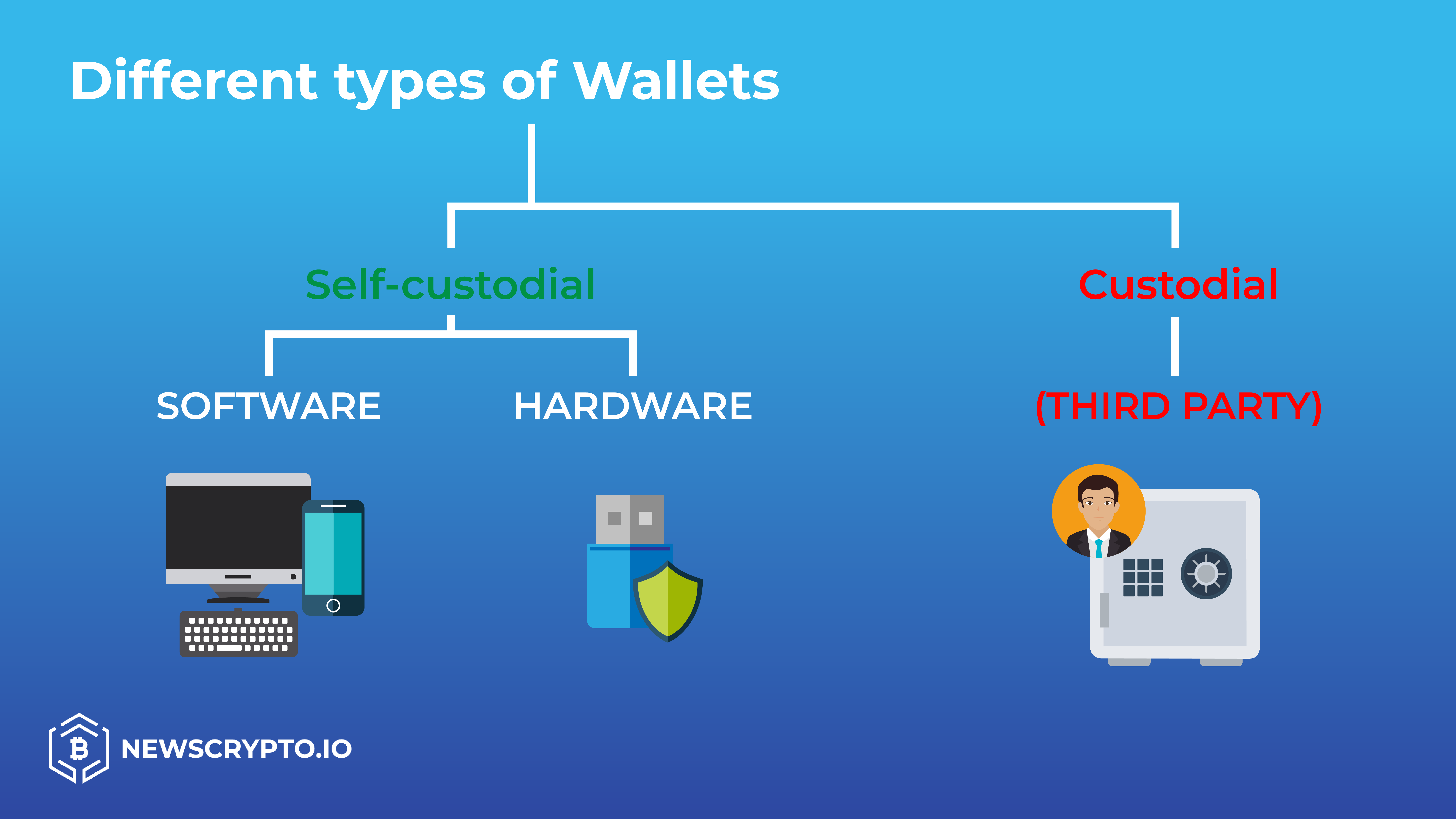Wallets are a safe way to hold cryptocurrency outside of centralized exchanges. When using a centralized exchange, it is much like storing money in the bank. You do not actually own the asset you think you own until it is in your hands. Centralized exchanges are useful for holding cryptocurrency in the short term for trading, but for long-term holding you have more guarantees your funds are safe using other solutions. So long as you ensure that you take the appropriate measures, there is less risk to holding crypto. That said, storing cryptocurrency outside of exchanges means that individuals are more responsible for their own funds, so it is up to them to make sure that they implement proper operational security measures.

What is a wallet?
A cryptocurrency wallet does not contain crypto, only the information related to the portion of the network that is stored on the ledger on a particular block on the chain. A wallet is generally accessed via a password. Once accessed you are then able to execute transactions to other people. In the case of sending, your private key is used. In the case of receiving your public key is used.
In order to restore a wallet, if ever the private key is lost, a mnemonic seed phrase is generated when a wallet is created. It generally contains 12 to 24 words. If lost, recovery is possible through the seed phrase. If the seed phrase is lost, then the person who lost it is out of luck and will never be able to get their funds back. This means that the holder has more responsibility for their own assets. There are three main types of wallets: central exchange wallets are considered the least secure; hot wallets are application-based, stored on computers, and are considered a middle ground; and finally cold storage wallets, which are considered most secure because the funds are kept off conventional electronics.
Centralized Exchanges
It is often said in the
cryptocurrency space that if you do not hold your keys, you do not hold your
crypto, but what does this actually mean? On centralized exchange platforms it
is easy to create an account with a secure password and 2-factor
authentication. Seems secure enough, right? The reality though is that
exchanges hold your seed phrase, and therefore the information of where your
cryptocurrency is on the ledger. At any point in time these exchanges could shut
down, disallow service in your country, have your assets seized, hacked (far
less common nowadays), and so on. Many state that this is also a good way to
lose your funds if ever your computer is compromised.
It used to be that exchanges were far less secure. However, over time they have increased in security. Now many exchanges employ cold storage wallet methods themselves kept on databases, and some are insured. All this said, one of the main reasons why people support cryptocurrencies is because of lack of trust in the banking and fiat currency systems. Centralized exchanges work similarly to a bank insofar as they hold it in your name, but it does not actually belong to you until you withdraw it.
Hot Wallets
Hot wallets, or web wallets, are applications that allow you to store cryptocurrency on them. Examples include MetaMask, Exodus, MyEtherWallet, MyCrypto Wallet, Atomic Wallet, among others. Most of the ones above are ERC-20 token wallets, cryptocurrencies that run using the Ethereum network. Others exist depending on what network or service you are using specific to the dApp or whatever else you are using. They are considered more active wallets because they are easier to access. Generally they are stored on hard drives, burned on disks, kept on computers, among other methods. This is a less secure method of holding your cryptocurrency because of the possibility of your computer getting compromised, along with your private key. They are more active though because it is easier to make trades, use DeFi, or execute other various transactions.
Cold Wallets
The
two types of cold wallets are hardware wallets and paper wallets. Hardware
wallets are physical storage devices such as Trezor, Ledger, Keepkey, Ellipal,
among others. It is even possible to make one yourself! These storage devices
hold your private key in an air-gapped device, which means that it does not
directly connect to your computer, keeping your funds safe. As always, the seed
phrase is kept on paper or stamped on metal. This means less possibility of
getting compromised. Most likely if you were compromised from a hardware
wallet, it’s because you bought one that was tampered with and previously
activated, or had your seed phrase stolen.
A paper wallet has the same benefits as a hardware wallet, though you have your private and public keys on a piece of paper or some other material. These wallets need to be actively managed when making transactions because it only uses paper.
Multi-Sig Wallet
More recently, multi-signature wallets have been popularized. These are the most complicated to manage but offer the greatest security because they require multiple addresses to confirm a transaction. This means that you could have five different wallets attached to a multi-sig and require three of those five wallets to confirm a transaction before it goes through. For obvious reasons, you wouldn’t require all wallets to perform a transaction in case something happens to one of them. That said, this offers by far the best security out of all the options and allows flexibility on how secure you want to make it. A multi-signature wallet could potentially contain a hardware wallet that is used seldomly, one that is hard to access for emergencies, and several hardware wallets from different applications. Gnosis boasts the highest total locked value of all the different services. It is trusted by projects such as Synthetix to perform governance-related changes, among other partnerships.
Conclusion
Has the phrase “not your keys not your crypto” stood the test of time? It depends on who you talk to. For those who are looking to yield farm, use DeFi, DAOS, and other related protocols the answer is a resounding yes. For those looking for alternatives to the traditional financial system the answer is yet again yes as well. For those who hold their crypto and never plan on selling, a yes to also the general consensus. For people who trade, dividing up holdings is considered a fantastic (and desired) solution and having exchange accounts and hardware/software wallets are also the norm. For now and in the foreseeable future, cryptocurrencies are like holding precious metals. If you don’t hold it, you don’t own it. Custodial services are useful but may come at a very high price if the custodian refuses to give it back because they are undercollateralized.




